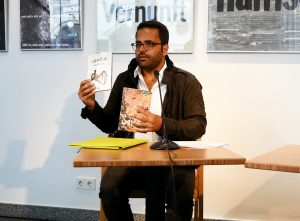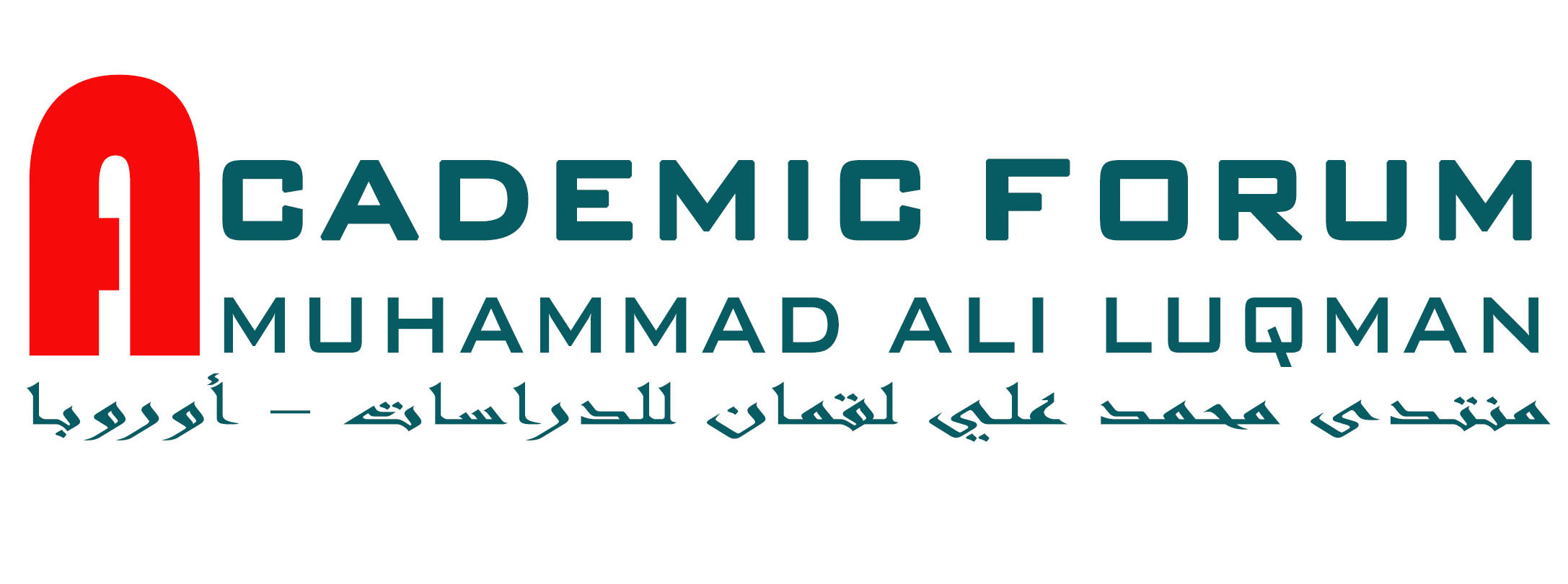Memory, Social Stratification and Migration in Batawil’s Novels
 On April 23, 2018, the “Literature Forum” in Berlin’s Brecht-Haus served as the venue of the Academic Forum Muhammad Ali Luqman’s inauguration and first public event. Abdulsalam Al-Rubaidi, literary scholar and doctoral candidate at the Friedrich-Alexander-University Erlangen-Nuremberg, presented Ammar Batawil’s (b. 1981) novels Salmin (2014) and Ekron 94 (2017). In the novel Salmin, Batawil tells the story of the Hadrami society in its birthplace (Hadramaut, South Yemen), Jeddah (Saudi Arabia), and Southeast Asia from the perspective of the former slave Salmin during the second half of the 19th century.
On April 23, 2018, the “Literature Forum” in Berlin’s Brecht-Haus served as the venue of the Academic Forum Muhammad Ali Luqman’s inauguration and first public event. Abdulsalam Al-Rubaidi, literary scholar and doctoral candidate at the Friedrich-Alexander-University Erlangen-Nuremberg, presented Ammar Batawil’s (b. 1981) novels Salmin (2014) and Ekron 94 (2017). In the novel Salmin, Batawil tells the story of the Hadrami society in its birthplace (Hadramaut, South Yemen), Jeddah (Saudi Arabia), and Southeast Asia from the perspective of the former slave Salmin during the second half of the 19th century.
In Ekron 94, Batawil traces the history of South Yemen during the Civil War of 1994. His narration reflects feelings of insecurity among the residents of the village of Ekron in Wadi Daw’an (Hadramaut), the conflicts with the lineage-based stratification of South Yemeni society, as well as migration and the political marginalization of the post-war population.
In both novels, Batawil draws a connection to the socialist era of the People’s Democratic Republic of Yemen. Abdulsalam Al-Rubaidi highlighted the significant role of novels in South Yemen for the process of collective remembrance of a difficult past and for the idea of a better future after the Arab Spring in 2011. He gave insights into the dominant themes and goals of contemporary literary narratives in South Yemen. Via Skype, the audience engaged in a live discussion with Ammar Batawil about his novels.
Videos

